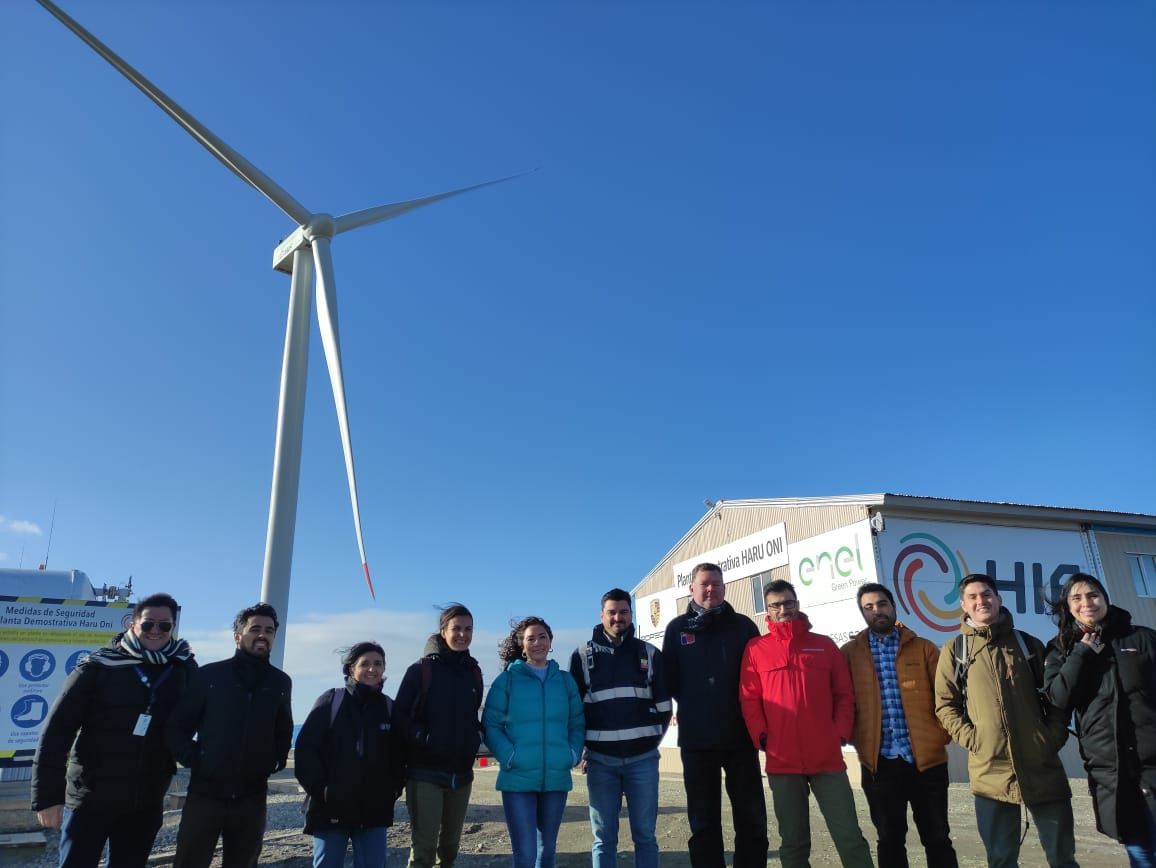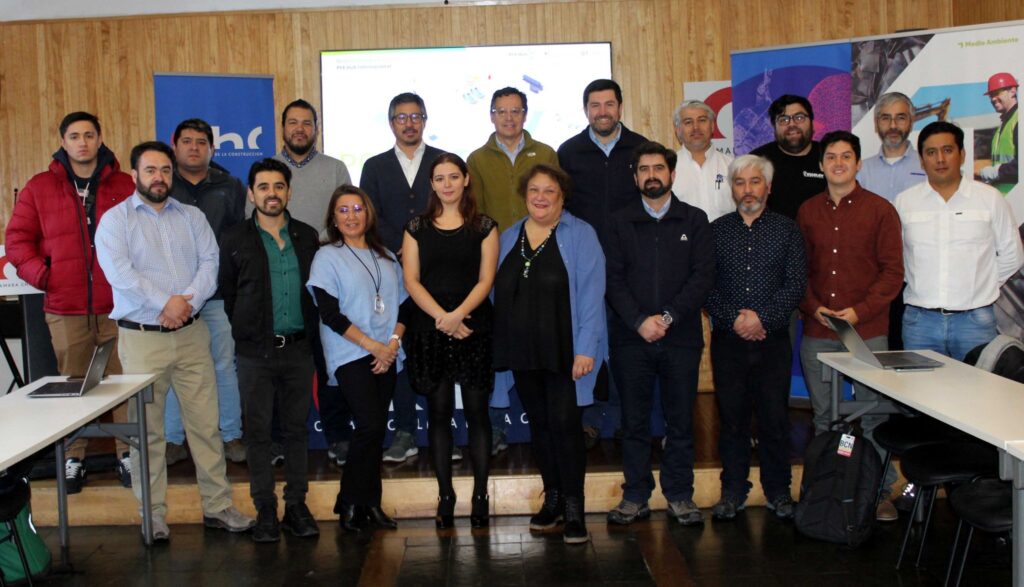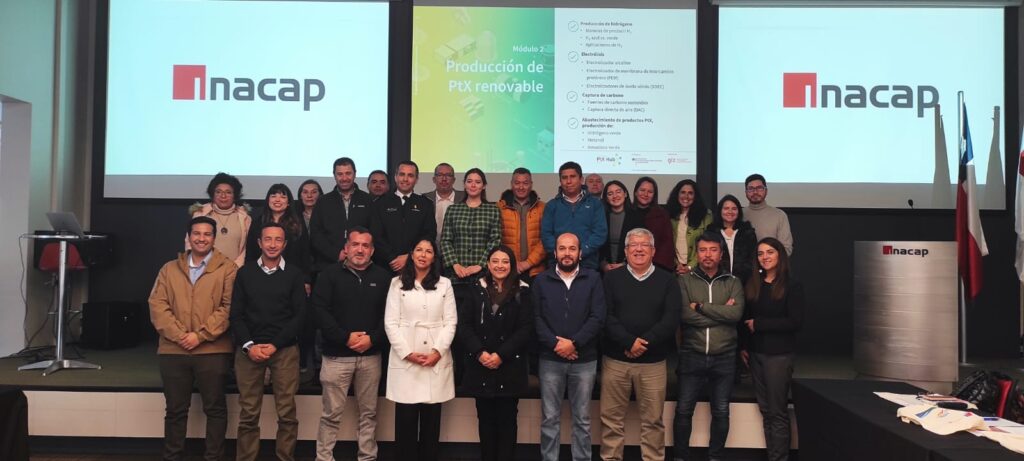More than 100 experts from the public and private sector in the Metropolitan, Bío Bío, Magallanes, and Chilean Antarctic regions have studied the foundations of Power-to-X in the recent PtX Hub PtX.Trainings in Chile.
The courses aim at enhancing the knowledge of key actors of Chile’s energy institutions and at generating a critical mass of experts with a high level of knowledge about PtX. The trainings provide a comprehensive overview of Power-to-X technologies, exploring fundamental aspects of Power-to-X. Topics include the concept of sustainable carbon, requirements and conditions for sustainable PtX production, and technical and economic aspects of renewable PtX products, including cost developments in green hydrogen, renewables, and electrolysers.
PtX.Training in Bío Bío: Focus on biomass as a CO2 source
The training in Concepción at the end of April focused on establishing the Bío Bío region as a potential PtX consumer. Discussions focused on local developments and how hydrogen could be used directly in the region because of its high industrial activity and the fact that it produces CO2 from its different biomass sources. Ricardo Lizana, an academic from the Engineering Department of the Universidad Católica de la Santisíma Concepción, participated and provided his perspective on the construction of a green hydrogen plant for industrial applications. The objective of the plant is to promote the economic development of this energy source and ensuring its sustainability. The conversations concluded with discussions on regional and national challenges for incentivising PtX technologies, not only for production and export, but also for local consumption.
PtX.Training in Punta Arenas: Visit to synthetic fuels plant
This PtX.Training took place in two sections, one for the public sector and one for the private sector. It concluded with a visit to the fully productive plant by the company HIF. The unique opportunity to observe the operation of this innovative technology, which produces synthetic fuels from renewable energy, provided the opportunity to gain a more in-depth understanding of the challenges associated with scaling up PtX production. Moreover, the participants of this training identified a regional need for a coordinated effort by a specialised unit to support the growth of the private sector and the necessary regulation by the public sector.
By providing the opportunity for representatives from the public and private sectors to engage with each other, the training enhanced their understanding of industry regulatory and support measures for project development.
More experts will be trained in a virtual course and an in-person training at the end of July in the Antofagasta region.


